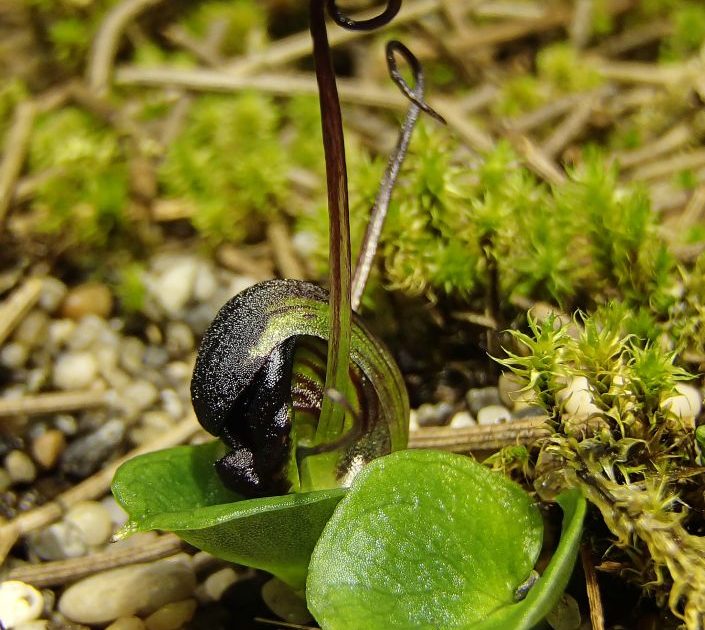In a world first, a critically endangered orchid has flowered for the first time away from its native home of Macquarie Island.
The grooved helmet orchid (Corybas sulcatus) was collected from the sub-Antarctic island earlier this year and returned to Australia on the Aurora Australis. It was transplanted in its new home at the Royal Tasmanian Botanical Gardens (RTBG) in March.
Listed as being critically endangered, the small orchid that reaches just 1–2 cm in height has never flowered away from Macquarie Island.
Australian Antarctic Division Principal Research Scientist, Dr Dana Bergstrom, said helmet orchids have exceptionally large flowers compared to the rest of the plant.
“There are just over 100 species of helmet orchids worldwide, stretching from the Himalayas to Australia, New Zealand and some Pacific and sub-Antarctic islands,” Dr Bergstrom said.
“The grooved helmet orchid is only found on Macquarie Island, making it one of the rarest species on Earth.
“The population is very small, so it’s important to secure the species with seed collections in case of threatening events such as drought.”
Royal Tasmanian Botanical Gardens sub-Antarctic Collections Curator, Lorraine Perrins, said the grooved helmet orchid was the first collected by the gardens.
“The RTBG has never held a collection of this diminutive orchid until our botanist was able to collect some specimens on Macquarie Island last summer,” Ms Perrins said.
“To see the grooved helmet orchid flower would be a once-in-a-lifetime event for most scientists on Macquarie Island, so to have it on display in Hobart is incredibly exciting.”
The grooved helmet orchid will be used by the RTBG’s Native Orchid Conservation and Research Program to understand the conditions in which it can survive and flourish.
Botanist Natalie Tapson, who spent three months on Macquarie Island collecting seeds for the RTBG’s Tasmanian Seed Conservation Centre, was also able to harvest 12 other plant species including the critically endangered Macquarie Island cushion plant (Azorella macquariensis).
“With the support of the Australian Antarctic Program, we are working towards ensuring that we can secure the plant diversity of the entire island’s flora,” Ms Perrins said.




